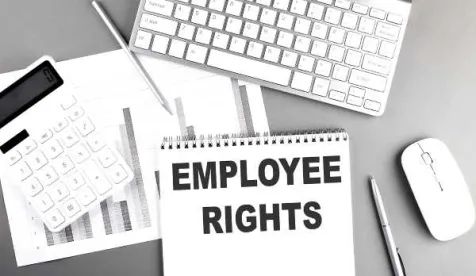The National Labor Relations Board’s (NLRB or the “Board”) Office of General Counsel (“GC”) released an internal advice memorandum on February 27, 2023, which indicates that the NLRB will seek to enforce the National Labor Relations Act (NLRA or the “Act”) against employers that allegedly retaliate against employees for having workplace discussions about racism. The memorandum—which concerned employment actions the Kaiser Permanente Bernard J. Tyson School of Medicine, Inc. (the “Tyson Medical School”) took with respect to a faculty member/physician following various discussions about race in the workplace—sets forth an expansive interpretation of conduct that constitutes protected concerted activity under Section 7 of the Act so as to include general discussions “working to end systemic racism, including its impact at the [e]mployer.”
All employers should be mindful of the advice memorandum as the NLRA applies to most private sector employers in the United States, regardless of whether their workplaces are union or non-union.
Background on Protected Concerted Activities
Section 7 of the NLRA protects employees who engage in “concerted” activity “for the purpose of . . . mutual aid or protection.” This protection is not limited to union organizing or unionized employees. It can include, among other things, non-union employee discussions about workplace issues, such as wages and benefits, in an effort to collectively improve their terms and conditions of employment. Employers who violate employees’ rights under the Act are subject to unfair labor practice (“ULP”) charges.
Background on Advice Memoranda
The NLRB’s regional offices initially handle ULP charges. The General Counsel has supervisory authority over the NLRB’s regional offices. On occasion, the regional offices will seek and the GC will provide instruction in the form of “advice memoranda” to assist them in their handling of ULP charges. The Board treats advice memoranda as confidential, but may release such memoranda to the public when the underlying cases are concluded.
Tyson Medical School Advice Memorandum Regarding Workplace Discussions about Race
The advice memorandum at issue concerned a ULP charge filed against the Tyson Medical School in February 2021 by an individual who was a faculty member at the school and a practicing physician in the school’s local medical group.
In the wake of national protests over several highly-publicized police shootings of African-Americans and other people of color, the faculty member engaged in discussions with other faculty members and students about racial bias in the medical field. In one classroom discussion attended by students and one of the faculty member’s colleagues, the faculty member discussed an email the medical school’s dean sent to faculty members, staff, and students about the police shooting of an African-American man that had recently occurred near the medical school, which faculty members considered to be “triggering, tone deaf and showed the [d]ean’s implicit racial bias.” During the discussion, the faculty member wore a t-shirt reading “I can’t breathe”–words spoken by Eric Garner and George Floyd prior to their deaths in police custody—and she also recommended that the students read Robin DiAngelo’s book “White Fragility: Why It’s So Hard for White People To Talk About Racism,” which was on the school’s “cultural competence” reading list. After a student became emotional and upset during the discussion, a participant told the faculty member the discussion was inappropriate and reported the faculty member to the school’s leadership.
The school subsequently suspended the faculty member and revoked her teaching privileges pending an investigation. Following several discussions with the faculty member, the school reinstated her as a physician in the medical group, but informed her that it would not renew her teaching contract after she posted several Twitter posts about the discussions she was having about race and the actions the school took against her. The faculty member filed a ULP charge in light of the school’s actions.
In the advice memorandum, the NLRB GC stated an opinion that the school violated the NLRA because the “classroom discussion about issues of race faced by Black faculty and students, as well as systemic racism in medicine, was inherently concerted and was for mutual aid or protection.” Furthermore, the memorandum said that “working to end systemic racism, including its impact at the [e]mployer, inures to the benefit of all employees, [and therefore,] the discussion [and tweets were] for mutual aid or protection.” The memorandum went on to state that the faculty member’s “tweets were protected concerted activity because they discussed terms and conditions of employment regarding racial disparities in medicine faced by medical professionals, sought the assistance of others to improve working conditions in medicine, and encouraged others to fight for racial equality and justice in the workplace,” and were “the logical outgrowth of the classroom discussion.” Finally the memorandum stated that the “protected concerted activity was a substantial and motivating factor that led the [e]mployer to suspend and ultimately terminate” the faculty member.
The parties settled the charge and the NLRB publicly released the advice memorandum. The release of the memorandum to the public appears designed to put employers on notice that the NLRB GC will broadly interpret protected concerted activity to cover workplace discussions about racial discrimination.
Other Recent NLRB Actions Regarding Workplace Discussions about Race
Other recent NLRB actions indicate that the protected concerted nature of workplace discussions about race like those at issue in the Tyson Medical School memorandum are under consideration, but whether such discussions ultimately will be deemed protected concerted activity will depend on the specific facts of the underlying ULP charge. For example:
-
The GC sought to enforce Section 7 of the Act against Whole Foods Market, Inc. for disciplining employees who wore “Black Lives Matter” pins for violating the company’s dress code policy, which prohibited employees from wearing non-company logos or slogans. In Kinzer v. Whole Foods Market Inc., the U.S. District Court for the District of Massachusetts ruled in January of this year in favor of Whole Foods, and the plaintiffs, Whole Foods employees who had been disciplined pursuant to the company’s dress code policy, have appealed to the U.S. Court of Appeals for the First Circuit.
-
In another email advice memorandum, dated July 2022, which the NLRB also released last month, the NLRB GC appeared to recognize limitations to the GC’s enforcement authority in this space. In that memorandum, the NLRB GC rejected an effort to use an employee’s violation of a workplace rule to broaden the scope the of NLRB’s interpretation of what constitutes concerted activity. In that case, a worker at a military shipbuilding company engaged in a verbal altercation with a security guard, and the company fired the employee for breaching its workplace rule for dignity and respect, according to the memorandum. The memorandum found: “While the charging party later claimed [they were] protesting the security guard’s use of racially harassing language on behalf of the co-worker, there is insufficient evidence that this conduct was concerted.”
Conclusion The NLRB’s release of the advice memorandum regarding Tyson Medical School is a strong indication that the NLRB will look to broadly interpret what constitutes protected concerted activities so as to cover workplace discussions about race, even if those discussions generally focus on racism in society. Employers should consider the implications of the NLRA—not just equal employment opportunity laws like Title VII or Section 1981 of the Civil Rights Acts of 1964 and 1866, respectively—when determining employment actions concerning individuals who raise concerns about racism and deciding whether and how to regulate general discussions of race in the workplace.







 />i
/>i

